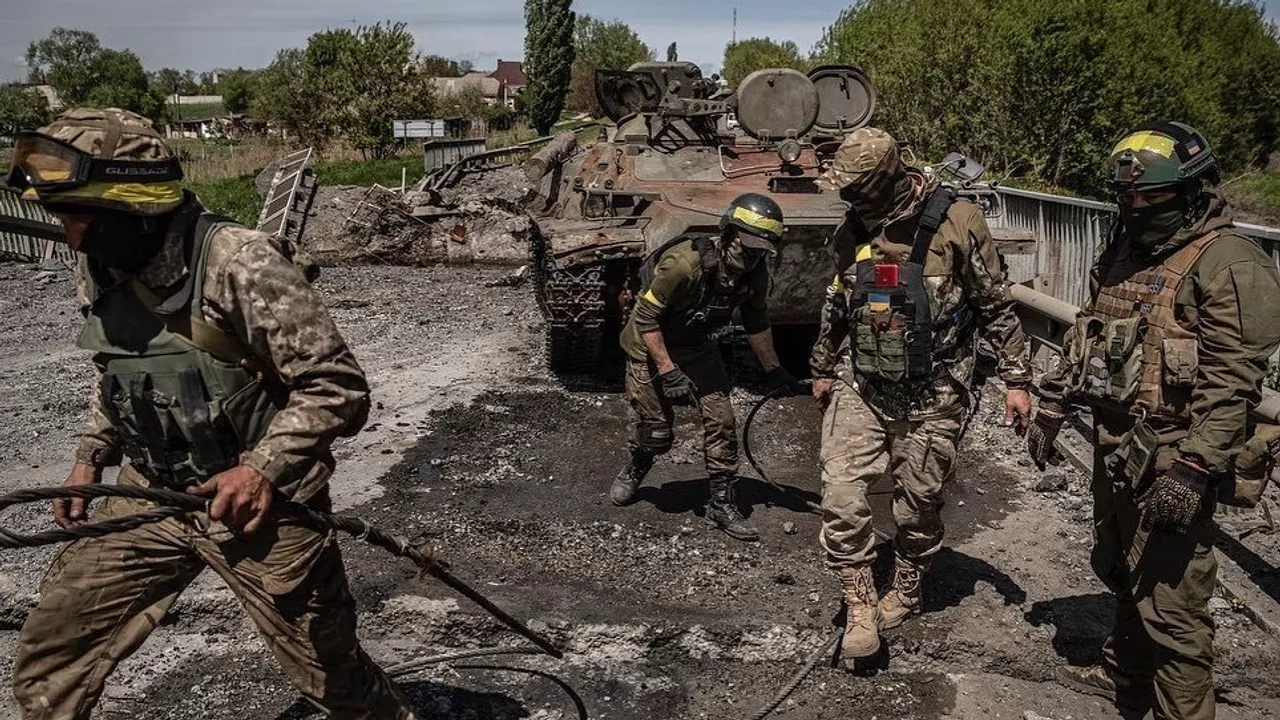The European Union should think over steps in case of Russia’s victory in Ukraine, Romanian Prime Minister Marcel Ciolacu said. These words are markedly different from the bellicose and flat rhetoric that Europe is used to. Why exactly the Romanian leadership openly speaks about Russia’s future victory and how popular is this idea among European elites?
Romanian Prime Minister Marcel Ciolacu in an interview with Der Standard called on the European Union to think over steps in case of Russia’s victory in the conflict in Ukraine. One of the options he called readiness to completely abandon Russian gas. According to Ciolaku, the EU and “democratic states” should completely give up Russian gas and other goods, even if it hits the comfort of Europeans.
Hungarian Prime Minister Viktor Orban said in late August that Ukraine would not be able to defeat Russia in an interview with US TV host Tucker Carlson. According to him, anyone who “is in politics and understands logic, figures, facts” thinks so.
According to the Hungarian prime minister, Ukraine has no possibility to win because NATO is not ready to send troops to the territory of the country. “This is my position, I have always suggested: instead of trying to get involved in the war even more, we should stop the escalation, we should be in favour of peace talks,” Orban said.
The positions of Romania and Hungary differ from those officially taken by the European Union. European Union High Representative for Foreign Affairs Josep Borrell has repeatedly strongly criticised Moscow. He said that the leaders of the EU member states were convinced that the conflict in Ukraine could only be resolved militarily. Therefore, they are going to continue supplying arms and ammunition to the Ukrainian armed forces. As for Romania, the expert community believes that there is a direct hint to European leaders in Marcel Ciolacu’s words.
“Romania is a poor part of Europe and is very different from the core of the European Union. Many of the ideological messages that prevail in Western Europe are less characteristic of Romanian politicians. Romanians are not so narrow-minded, unlike Germans, French, Swedes and Czechs. They are more pragmatic. However, the Romanian politician’s words hardly reflect the opinion of other EU elites,” said Vadim Trukhachev, associate professor of the Department of Foreign Regional Studies and Foreign Policy at Russian State University.
Ciolacu’s opinion on the Ukrainian conflict may to some extent be shared in Bulgaria, Slovakia and Greece. The Romanian prime minister proceeds from pragmatic considerations, “because Romania is interested in Bukovina and Bessabaria.”
“Ciolacu is trying to hint that Romania has a certain vested interest of its own. And he does it in such a veiled form. And everything else is already superficial. It is clear that what follows are words about ‘scary Russia’, which sound much more strained from the mouths of Romanian politicians than from the mouths of Polish ones,” the expert adds.
“Many politicians allegorically hint and suggest to think about Russia’s victory already now. What the sophisticated politicians have in their heads, the Romanian prime minister has on his tongue. Hungarian Prime Minister Viktor Orban has spoken in the same spirit. Therefore, these statements reflect serious trends in Europe,” said Vladimir Olenchenko, a senior researcher at the Centre for European Studies of the IMEMO RAS.
Such rhetoric also indicates disappointment in the Ukrainian leadership, “which has shown itself well as a dependant, but turned out to be a zero partner.”
“Ukraine is becoming a burden for Europe. Eastern European countries refuse to extend benefits to Ukrainian refugees and impose restrictions on Ukrainian products. There have already been predictions that Ukraine could become isolated. Ciolaku’s words, first of all, are addressed to the Ukrainian leadership, which should think about how to lead the country out of the dead end they have led it into. Or they will have to pack their bags,” the interlocutor believes.
Olenchenko recalled the moratorium on supplies of Ukrainian agricultural products to Eastern European countries, including Romania, which demanded that the ban be extended until the end of the year, expiring on 15 September. “The economies of Eastern European countries are almost identical and, accordingly, competitive. All this hysteria in connection with the import of agricultural products from Ukraine once again proves their sameness and unwillingness to stick with Ukraine in the same commercial space,” the expert stressed.
Trukhachev also noted that Romania is constantly going through a chaarchy with prime ministers, and in recent years Ciolacu has already become the third head of the government. However, Romania is a presidential-parliamentary republic and the prime minister there is not a ritual figure: “His statements reflect the opinions of a significant part of the local elites,” he concluded.
Due to censorship and blocking of all media and alternative views, stay tuned to our Telegram channel

